
Foot Loose & Fancy Free is the eighth studio album by Rod Stewart, released in November 1977 on Riva Records in the UK and Warner Bros in the US.
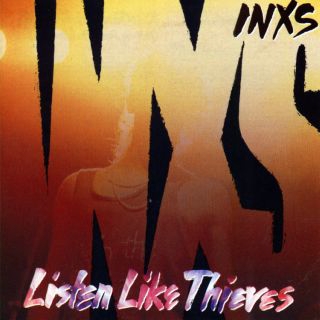
Listen Like Thieves is the fifth studio album by Australian rock band INXS. It was released on 14 October 1985. It spent two weeks at number one on the Australian Kent Music Report Albums Chart. Considered an international breakthrough album for the band, it peaked at No. 11 on the United States Billboard 200, No. 24 on the Canadian RPM 100 Albums and in the top 50 in the United Kingdom.

Jump Up! is the sixteenth studio album by English musician Elton John. It was released in 1982 by The Rocket Record Company except in the US and Canada, where it was released by Geffen Records.
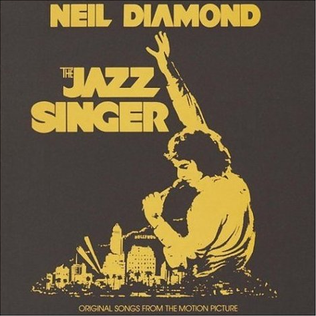
The Jazz Singer is an album by Neil Diamond from 1980, which served as the soundtrack album to the 1980 remake of the film The Jazz Singer. The soundtrack was released in November 1980 originally on Capitol Records, instead of his then-usual Columbia Records, because the film was produced by EMI Films, owned by the parent company of the label for which the soundtrack was released. The soundtrack was re-released in February 1996 on Columbia Records in the United States and Sony elsewhere. After Diamond signed with Capitol Records, this album was reissued by Capitol globally in 2014.

Love at the Greek is a live double album by Neil Diamond which was released in 1977. It was Diamond's second live album recorded from a concert at The Greek Theater in Los Angeles, and Neil's second album produced by Robbie Robertson of The Band. The CD release does not include the songs "The Last Picasso" and "Longfellow Serenade".
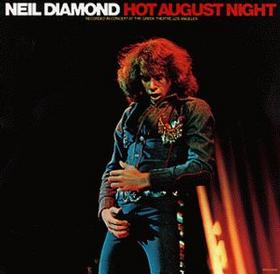
Hot August Night is a 1972 live double album by Neil Diamond. The album is a recording of a Diamond concert on August 24, 1972, one of ten sold-out concerts that Diamond performed that month at The Greek Theatre in Los Angeles. This also marks the first album released by the newly formed MCA Records.
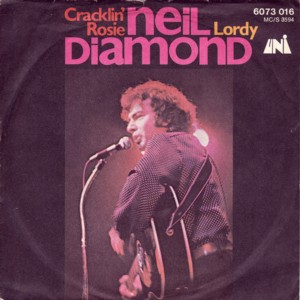
"Cracklin' Rosie" is a song written and recorded by Neil Diamond in 1970, with instrumental backing by Los Angeles session musicians from the Wrecking Crew, including Hal Blaine on drums, Larry Knechtel on keyboards, Joe Osborn on bass, Al Casey on guitar and Gene Estes on percussion – arranged by Don Randi. The song was included on Diamond's album Tap Root Manuscript. In October 1970 the song became Diamond's first American No. 1 hit within the Billboard Hot 100, and his third to sell a million copies. It was his breakthrough single on the UK Singles Chart, reaching No. 3 for four weeks in November and December. Billboard ranked the record as the No. 17 song of 1970. It also reached No. 2 in both the Australian Singles Chart and the Irish Singles Chart. Its best performance was in New Zealand, where it stayed at No. 1 for five weeks at the end of the year.
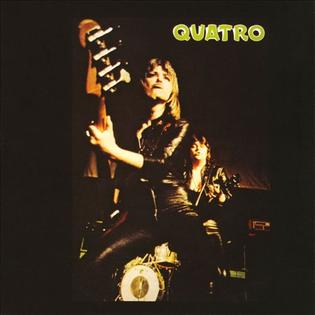
Quatro is Suzi Quatro's second album, released in October 1974 by Rak Records as SRAK 509, with the exceptions of the United States and Canada, Japan and several territories in Europe.

Jonathan Livingston Seagull is the soundtrack album to the 1973 American film Jonathan Livingston Seagull, recorded by singer-songwriter Neil Diamond and produced by Tom Catalano. The album marked Diamond's return to Columbia Records, and grossed more than the film itself. It was Diamond's ninth studio album, and his first album after his successful 1972 live album Hot August Night. It won the 1974 Grammy as Best Original Score Written for a Motion Picture or a Television Special.
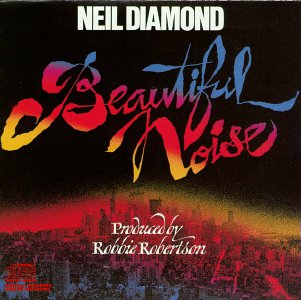
Beautiful Noise is the tenth album by Neil Diamond and his third with Columbia Records, released in 1976. "Dry Your Eyes" was performed with The Band at their farewell show and is featured in Martin Scorsese's The Last Waltz.

Gold: Recorded Live at the Troubadour is a live album by singer/songwriter Neil Diamond.

In Your Mind is the fourth solo studio album by English singer and songwriter Bryan Ferry. It was his first solo album of all original songs.

Back Home Again is the eighth studio album by American singer-songwriter John Denver, released in June 1974.

Moods is the eighth studio album by Neil Diamond, released by Uni Records in 1972. It contained the second of his No.1 songs, "Song Sung Blue", and was something of a follow-up in style to the highly experimental Tap Root Manuscript. The album entered Billboard on July 15, where it reached No. 5 in early September.
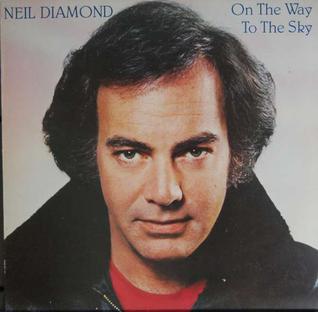
On the Way to the Sky is the fourteenth studio album released by Neil Diamond in 1981. It contained the hit "Yesterday's Songs", which reached number eleven on the Billboard Hot 100, title track which peaked at number 27 in the US and a third single, "Be Mine Tonight", which also reached the Top 40, peaking at number 35.
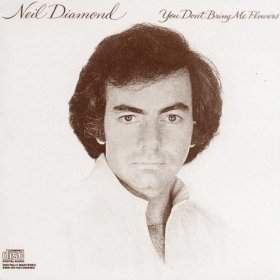
You Don't Bring Me Flowers is Neil Diamond's twelfth studio album. It was released in 1978 to capitalize on the success of the title song of the same name, a duet with Barbra Streisand, which had originally appeared as a solo recording on Diamond's previous album, I'm Glad You're Here with Me Tonight.

Heartlight is the fifteenth studio album by Neil Diamond. It was released in August 1982 on Columbia Records. The album spent 34 weeks on the charts and peaked at #9. For shipments of a million copies it was certified Platinum by the RIAA.

September Morn is the thirteenth studio album by the American singer-songwriter Neil Diamond. Released in 1979, the album includes a disco version of the Motown song "Dancing in the Street" and a remake of "I'm a Believer".

Primitive is the sixteenth studio album by Neil Diamond. It was released in 1984 on Columbia Records. Its singles "Turn Around", "Sleep With Me Tonight", and "You Make It Feel Like Christmas" reached numbers 4, 24, and 28, respectively on the Billboard Adult Contemporary singles chart, while "Turn Around" also reached number 62 on the Billboard Hot 100 chart. The album was certified gold by the RIAA on October 5, 1984.
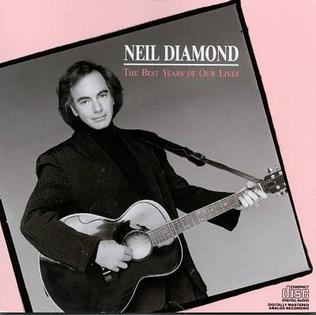
The Best Years of Our Lives is the eighteenth studio album by Neil Diamond. It was released by Columbia Records in 1988 and reached number 46 on the Billboard 200 chart, number 42 on the UK album chart, and number 92 on the Australian chart. The album was certified gold by the RIAA on February 16, 1989. In his review of The Best Years of Our Lives music critic Bryan Buss referred to it as "a strong entry in Diamond's oeuvre" and as "an album that is romantic and sentimental without being manipulative".




















